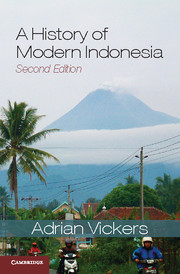Book contents
- Frontmatter
- Contents
- List of figures, maps and tables
- Acknowledgements
- A note on spelling, pronunciation and names
- Chronology
- Introduction
- Chapter 1 Our colonial soil
- Chapter 2 Cultures of the countryside
- Chapter 3 ‘To assail the colonial machine’
- Chapter 4 The Revolution
- Chapter 5 Living in the atomic age
- Chapter 6 From the old order to the new
- Chapter 7 Terror and development in happy land
- Chapter 8 Age of globalisation, age of crisis
- Biographies of key figures
- Abbreviations and glossary
- Notes
- Bibliography
- Index
Biographies of key figures
Published online by Cambridge University Press: 05 February 2013
- Frontmatter
- Contents
- List of figures, maps and tables
- Acknowledgements
- A note on spelling, pronunciation and names
- Chronology
- Introduction
- Chapter 1 Our colonial soil
- Chapter 2 Cultures of the countryside
- Chapter 3 ‘To assail the colonial machine’
- Chapter 4 The Revolution
- Chapter 5 Living in the atomic age
- Chapter 6 From the old order to the new
- Chapter 7 Terror and development in happy land
- Chapter 8 Age of globalisation, age of crisis
- Biographies of key figures
- Abbreviations and glossary
- Notes
- Bibliography
- Index
Summary
Presidents, Vice-Presidents and Prime Ministers
sukarno (1901–70), son of a Javanese teacher from the lower aristocracy and a Balinese woman. Educated in Surabaya, where he met many of the nationalist leaders, and then Bandung, where he studied engineering. In 1921 he married Siti Utari Cokroaminoto, whom he divorced in order to marry Inggit Gunarsih in 1922. His subsequent wives were Fatmawati (m. 1943), Hartini (m. 1953), Kartini Manoppo (m. 1959), Ratna Sari Dewi, or Naoko Nemoto (m. 1962), Haryati (m. 1963), Yurike Sanger (m. 1964) and Heldy Jafar (m. 1967). Founded the General Study Club in 1925 and the PNI, or Indonesian Nationalist Association (later the Indonesian Nationalist Party), in 1927. Arrested in 1929 for his nationalist activities, he was tried and imprisoned until 1931, then rearrested in 1933 and sent into exile to Flores and then in 1938 to Bengkulu. Freed by the Japanese in 1942, he headed a number of bodies established by them, including the committee to prepare for independence. In June 1945 he declared the Five Principles of the nation of Indonesia and took part in the drafting of the first constitution. At the end of the war, Sukarno and Hatta were kidnapped by a group of activists in an attempt to force them to declare independence, which they did on 17 August 1945. Sukarno became president and head of a republican government. He remained in this position except for the period 1948–9, when he was a prisoner of the Dutch. In November 1949 he became president of the Republic of the United State of Indonesia and on 17 August 1950 president of the Republic of Indonesia. Subject to seven assassination attempts, he declared martial law and Guided Democracy in 1957. After the ‘coup’ of 1965 he was under military pressure to hand over power to Suharto, which he did provisionally through the Letter of Command of 11 March 1966.
muhammad hatta (1902–80), from Minangkabau in Sumatra, studied in the Netherlands, where he became leader of the Indonesian Association in 1922. Arrested in 1927 but tried and acquitted in 1928, he joined Sukarno's PNI on return to Indonesia and subsequently took part in the Indonesian National Education body (PNI-Baru, or the New PNI) with Syahrir. Both were arrested and sent into exile to Boven Digul in 1934, and subsequently moved to Banda in 1936.
- Type
- Chapter
- Information
- A History of Modern Indonesia , pp. 237 - 244Publisher: Cambridge University PressPrint publication year: 2013



